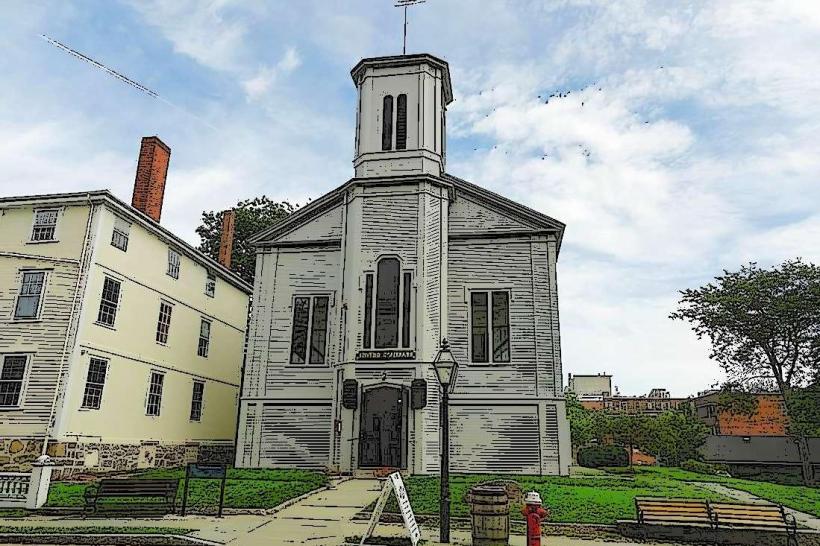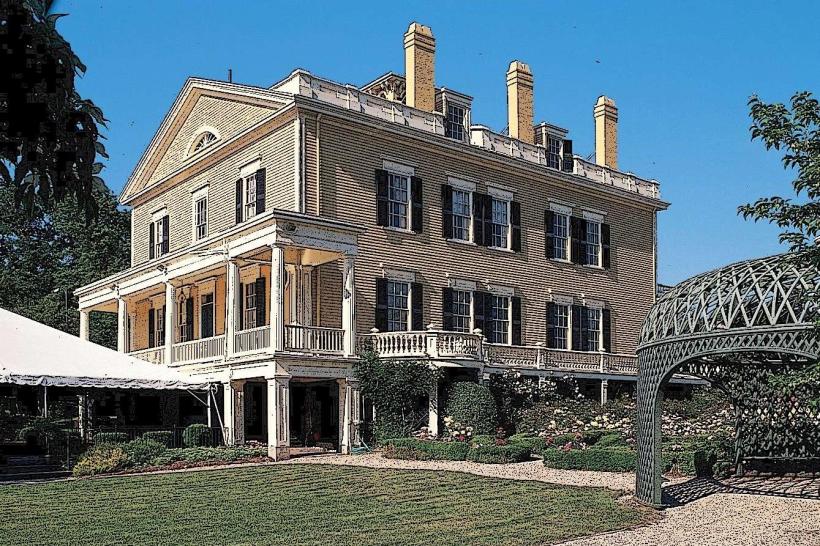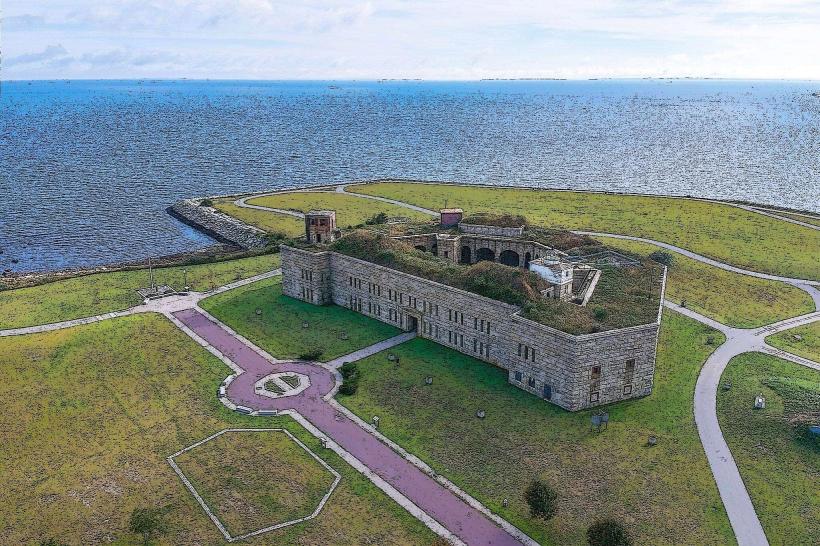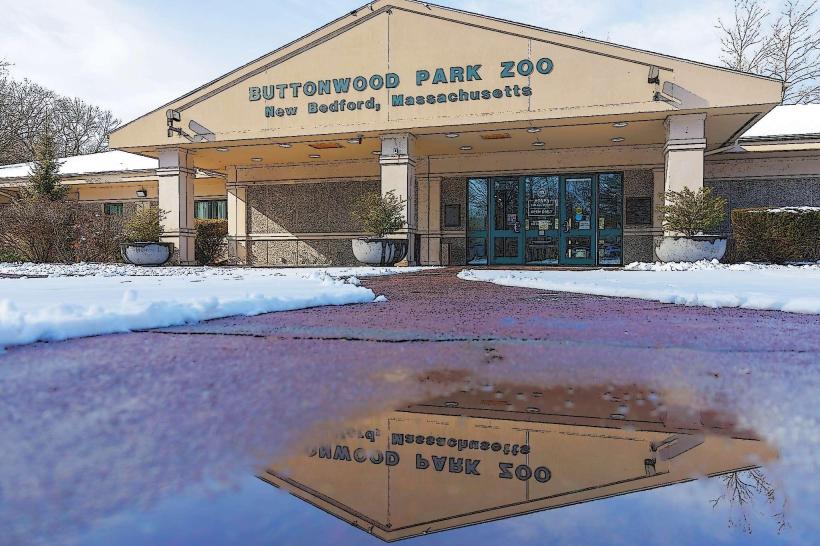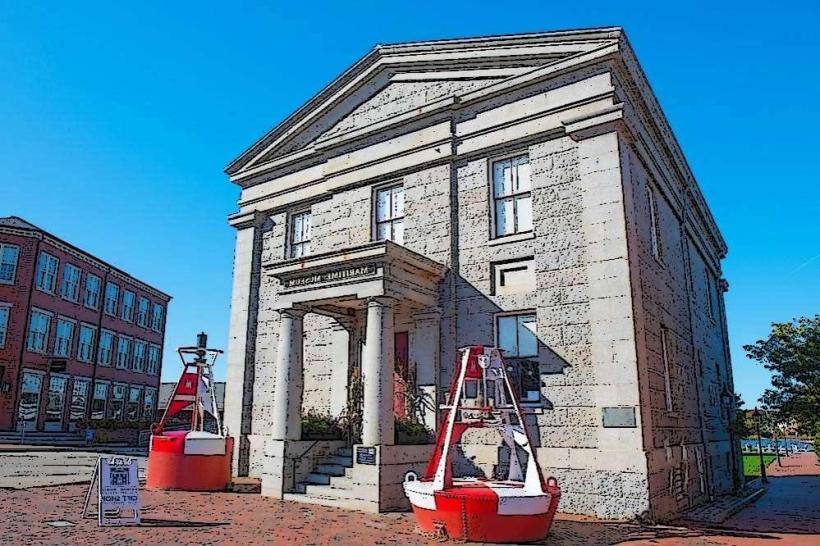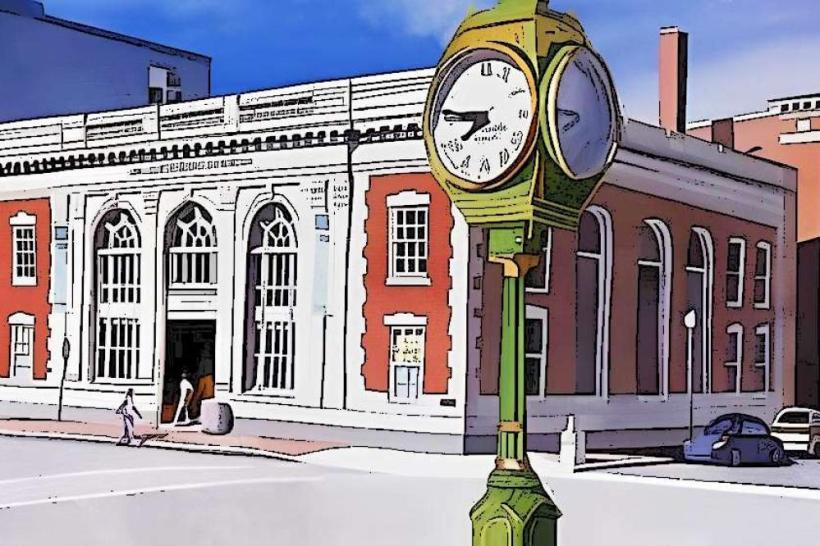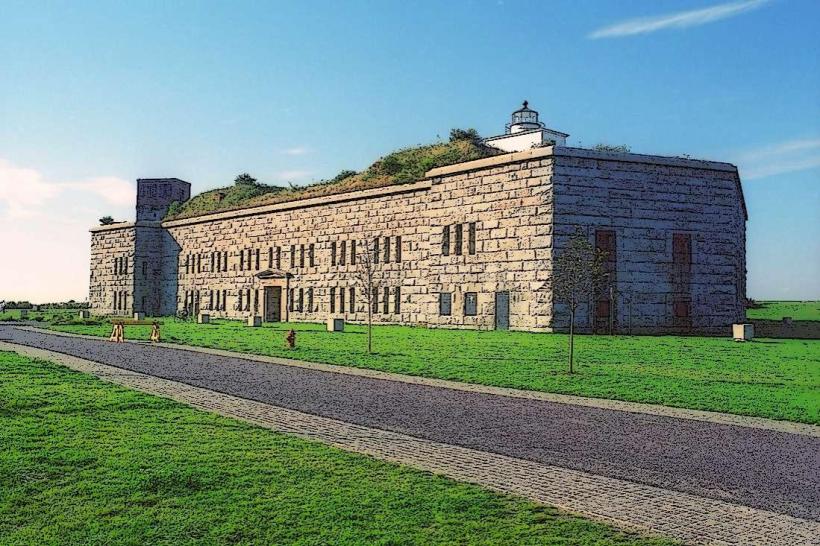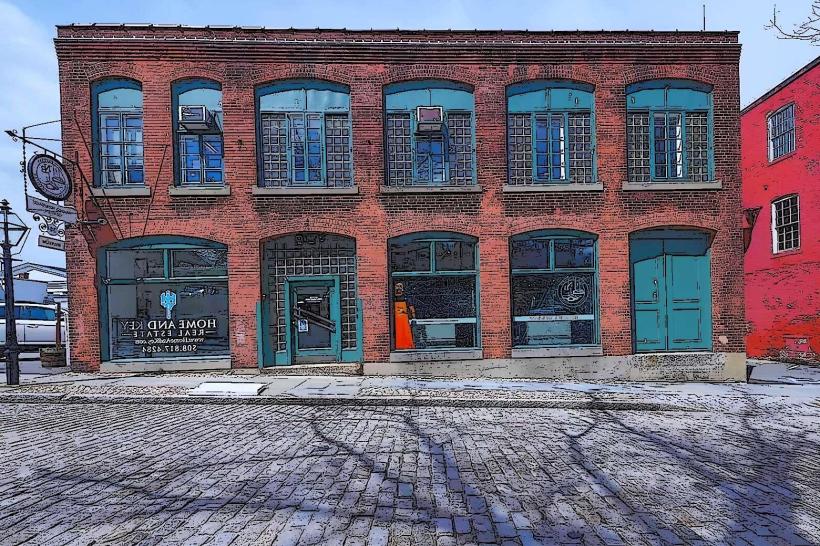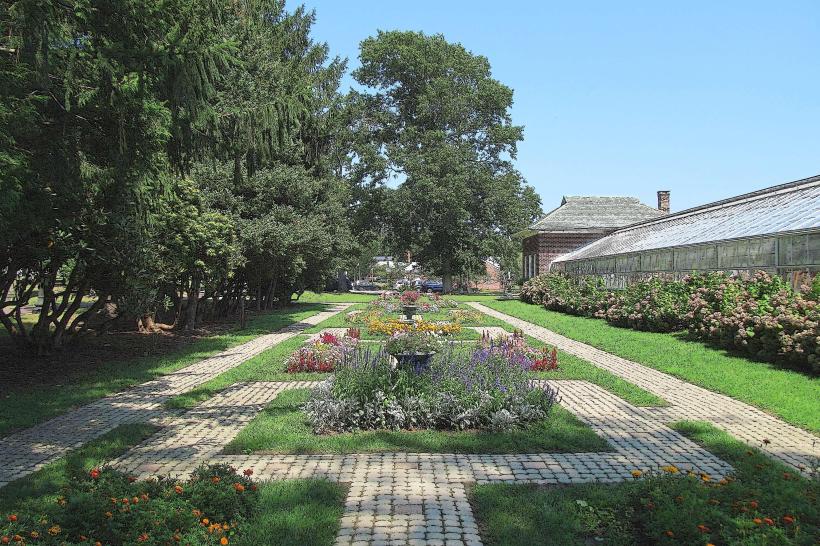Information
Landmark: New Bedford Whaling MuseumCity: New Bedford
Country: USA Massachusetts
Continent: North America
New Bedford Whaling Museum, New Bedford, USA Massachusetts, North America
The New Bedford Whaling Museum, located at 18 Johnny Cake Hill in New Bedford, Massachusetts, stands as one of the world’s foremost institutions dedicated to the history, culture, and science of whaling and maritime life. Founded in 1903 by the Old Dartmouth Historical Society, the museum preserves and interprets the legacy of the whaling industry that once made New Bedford the richest city per capita in America during the 19th century. Its vast and diverse collections, educational programs, and exhibitions offer an immersive journey into the global whaling trade, maritime heritage, and the natural history of whales.
Historical Context and Significance
New Bedford rose to international prominence as the “Whaling Capital of the World” in the 1800s, dominating the American whaling industry due to its deep harbor, skilled workforce, and strategic location. The city’s economy, culture, and society were shaped by this industry, which fueled global demand for whale oil-used for lighting, lubrication, and industrial processes before petroleum replaced it.
The museum captures this unique historical moment, documenting how whaling voyages, often lasting years, connected New Bedford to distant oceans and cultures worldwide. It also tells the stories of the diverse crews, including African Americans, Native Americans, Portuguese, Cape Verdeans, and Azoreans, who worked aboard the whaling ships.
Collections and Exhibits
The museum’s collection exceeds 750,000 artifacts, providing a comprehensive look at maritime history through multiple dimensions:
The Lagoda Model: The centerpiece is the world’s largest whaling ship model, the Lagoda, an 89-foot-long, half-scale representation of a 19th-century whaling bark. Visitors can explore detailed deck layouts, rigging, and boat stations, offering insights into the shipboard life and the complexity of whaling expeditions.
Whale Skeletons: The museum houses five complete whale skeletons, including a rare pregnant North Atlantic right whale with its fetus, along with blue, humpback, and sperm whales. These skeletons allow visitors to appreciate whale anatomy and size while fostering awareness of conservation issues.
Scrimshaw and Whaling Tools: Featuring over 3,000 pieces of scrimshaw-intricately carved or engraved whale bone and ivory artifacts created by sailors-along with thousands of whaling implements, navigation tools, and ship equipment. These items reflect the craftsmanship, artistry, and practical skills of whalemen.
Whaling Logbooks and Documents: The museum preserves more than 2,500 whaling logbooks and journals, essential primary sources revealing daily life at sea, navigation challenges, encounters with whales, and economic details.
Azorean Whaleman Gallery: This exhibit honors the Azorean immigrants who formed a significant part of New Bedford’s whaling crews, highlighting their culture, migration stories, and enduring impact on the city’s maritime heritage.
Art and Photography: The museum displays paintings, prints, and photographs depicting whaling scenes, ships, and life in New Bedford during the industry’s heyday.
Educational Programs and Research
The museum serves as an active center for maritime scholarship and public education. It offers:
Guided tours focusing on the museum’s signature artifacts and narratives.
School programs tailored to students, emphasizing American history, maritime science, and environmental stewardship.
Lectures and special events that engage scholars, historians, and the community on topics ranging from maritime archaeology to whale conservation.
Research facilities that support historians, genealogists, and scientists studying maritime culture and marine biology.
Visitor Experience and Facilities
The museum’s facilities are designed to provide an immersive and accessible experience:
Visitors enter through a historic waterfront building in downtown New Bedford, surrounded by preserved wharves and maritime infrastructure.
The Lagoda model is centrally located and visible from multiple floors, often serving as a visual anchor during tours.
Interactive displays and multimedia presentations bring to life the whaling voyages, ship technology, and global trade networks.
Whale skeletons are displayed in spacious halls with interpretive signage about whale biology and conservation.
A museum gift shop offers books, replicas, and maritime-themed souvenirs.
A 3D theater presents educational films about whales, ocean ecosystems, and maritime history, enhancing engagement.
Accessibility and Visitor Information
The museum is open daily from April through December (9:00 AM to 5:00 PM), and with limited winter hours from January through March.
Admission fees vary by age and include options for museum-only or combined museum and 3D film experiences.
Ample parking is available nearby, including metered street parking and public garages within walking distance.
The museum is wheelchair accessible and offers accommodations for visitors with disabilities.
Importance and Legacy
The New Bedford Whaling Museum stands as a vital repository preserving the intertwined human and natural history of whaling, a practice that profoundly shaped maritime commerce, technological innovation, and cultural exchange. It honors the lives of those who sailed the global seas, highlights the artistry and science that emerged from this unique industry, and promotes awareness of the ongoing importance of whale conservation. As such, it is not only a window into the past but a dynamic institution informing contemporary dialogue about humanity’s relationship with the oceans.
Summary
The New Bedford Whaling Museum offers a comprehensive and engaging exploration of one of America’s most iconic maritime industries through an unparalleled collection of artifacts, immersive exhibits, and educational programming. From the grandeur of the Lagoda ship model to the haunting presence of whale skeletons, the museum provides visitors with a deep understanding of whaling’s historical, cultural, and ecological dimensions. Its commitment to preservation and education makes it a cornerstone of New Bedford’s heritage and a significant destination for maritime history enthusiasts worldwide.

